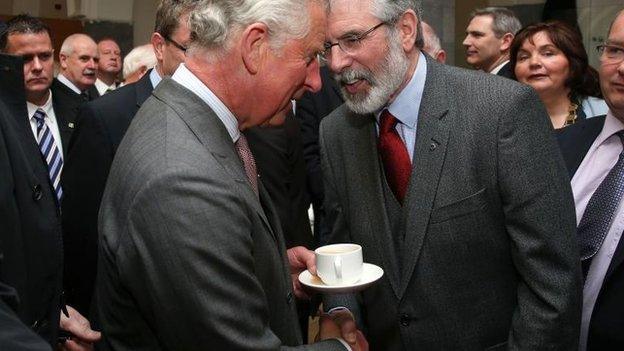Prince Charles in Ireland: Peace-building paved way for Mullaghmore visit
- Published
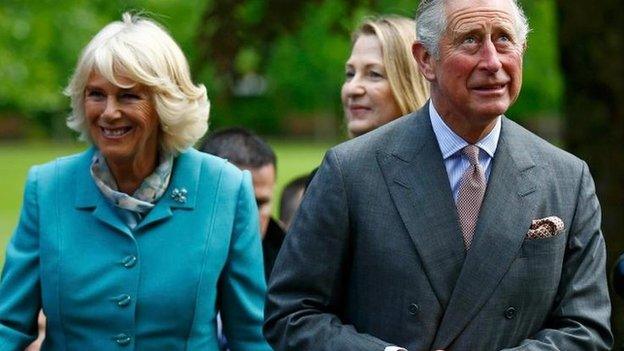
Prince Charles's personal pilgrimage to Mullaghmore in County Sligo is seen as one of the most poignant moments of the Royal visit to Ireland
Years of peace-building by communities across the Irish border paved the way for the visit of Prince Charles to the scene of the murder of his great-uncle, a Northern Ireland clergyman has said.
Lord Louis Mountbatten and three others were killed when an IRA bomb exploded on their boat in Mullaghmore, County Sligo, in 1979.
Presbyterian minister Rev Alan Mitchell has spent much of his career in Sligo helping people and communities in their efforts to unite across the border.
Those community efforts, the links and trust forged, as well as a change in atmosphere after the Queen's visit to the Republic of Ireland in 2011, helped make the visit of the Prince of Wales to the village possible, he said.
Attempts had been made to bring a member of the Royal family to the area before now, but the legacy of the bombing lingered on for a long time and there was "never the mood for it", said Rev Mitchell.
Even in 2011, when the Queen made the first visit by a UK monarch to the Republic of Ireland, the thought of a visit to Sligo was seen as inappropriate by some, he added.
Elements
But Rev Mitchell said the atmosphere has changed significantly since then.
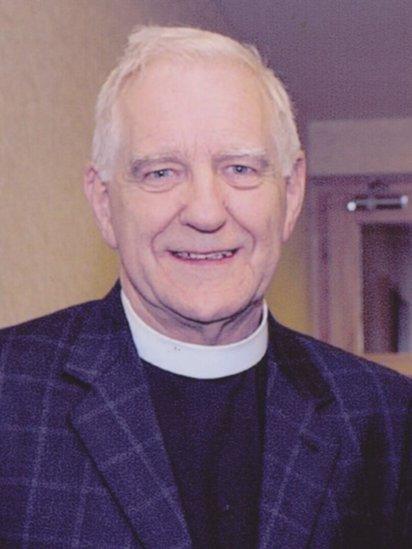
Rev Alan Mitchell said: "Peace-building, improving relations is a slow, steady job."
"This was a wound that was there, that was still open, that nobody wanted to talk about it," he says.
"Protestants kept their heads down locally, they didn't want any fuss.
"Before the Queen's visit, we daren't have mentioned too much about a visit of Prince Charles because it would've brought the wrath of certain elements.
"But now even Sinn Féin have given their support for this visit. That would not have happened four years ago."
Originally from Londonderry, Rev Mitchell has been in the ministry in Sligo since 1988.
Even though that was nine years on from the bombing at Mullaghmore, the minister for the Sligo and Boyle congregations said there was always a sense of "tremendous grief" in the area after Lord Mountbatten's killing.
Uniting
In his early years in Sligo, Rev Mitchell accompanied groups of people from the Republic of Ireland to Belfast after the first ceasefires and went on to work with north-south bodies on exchange programmes.
Between 1997 and 2006, he organised annual Christmas celebrations of peace at the Waterfront Hall in Belfast and Derry's Millennium Forum, uniting musicians from both sides of the border, including the bands of both police forces.
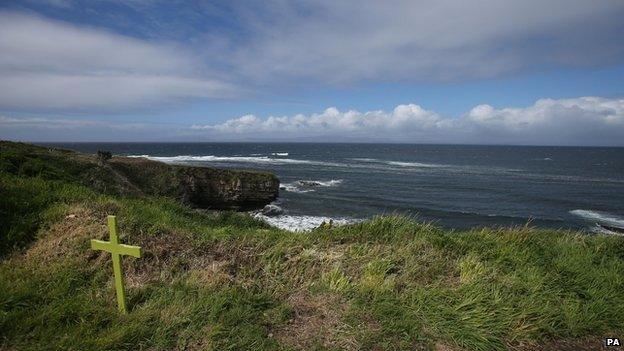
A cross stands at Mullaghmore Bay close to where Lord Mountbatten's boat was blown up in 1979
The gala events were supported by both the British and Irish prime ministers, and by US presidents Bill Clinton and George Bush, external, and it was through these that he built a close working relationship with the British embassy in Dublin.
That connection has been crucial in securing the Royal visit to Sligo, Rev Mitchell said.
"We've had ongoing contact with the British embassy, the ambassador is down here in Sligo regularly," he said.
"Gradually, we got hints and indicators. The department of foreign affairs had to get involved and gave it the green light, and here we are."
Sincere
Prince Charles and his wife, the Duchess of Cornwall, will visit Drumcliffe Church for a service of peace and reconciliation.
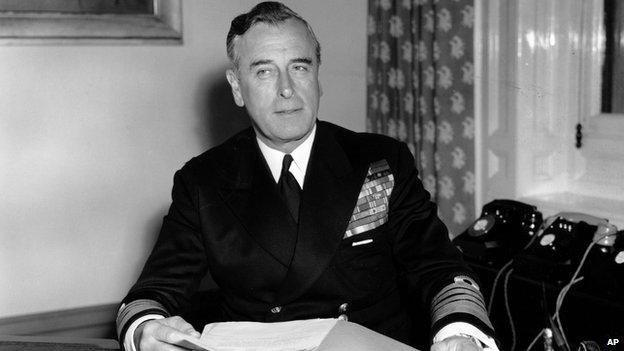
There was always a sense of "tremendous grief" in Mullaghmore after Lord Mountbatten's killing, Rev Mitchell says
The prince will plant a tree in the churchyard in memory of Lord Mountbatten, next to one planted by Mary McAleese in 2001, before moving on to Mullaghmore.
Rev Mitchell said: "We know that as far back as 10 years ago he expressed a sincere desire to visit Mullaghmore some day, and we also know that from other contacts that we've had with Buckingham Palace around the Queen's visit.
"It's a dream come true, after 10 years. The whole community is thrilled and delighted.
"Peace-building, improving relations is a slow, steady job. When you have a vision for something you must keep chipping at it until you achieve it."
- Published19 May 2015
- Published19 May 2015
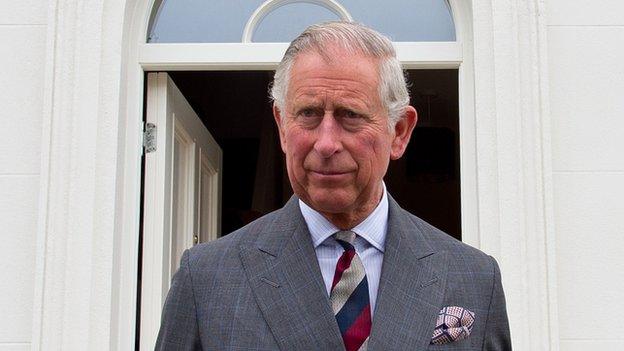
- Published19 May 2015
